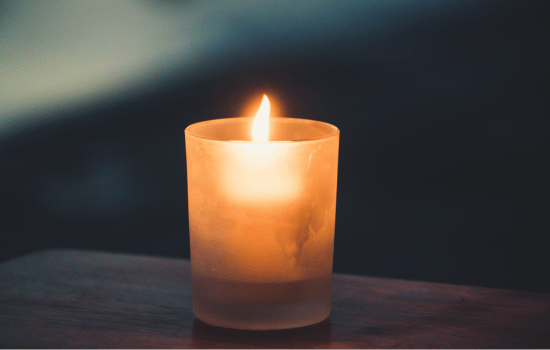What’s the Difference Between Grief and Mourning?
It’s common to experience both grief and mourning after suffering a loss. Grief is simply the form love takes after something we loved is gone. However, many people aren’t aware of the differences. Having this understanding can help you make meaning of your experience. In this post, I break down the difference between grief and mourning and offer some resources for coping with loss.
Losing someone or something significant in our lives can be an incredibly challenging and painful experience. The emotions and processes that follow such a loss can often be overwhelming, leaving us confused and searching for answers. One common source of confusion is understanding the difference between grief and mourning. In this blog post, I want to help unpack these two terms and shed some light on their similarities, differences, and how they can affect us. By gaining a deeper understanding of the terms grief and mourning, we can begin to make meaning of our experiences and find healthy ways to cope with loss.
What is grief?
Grief is a natural and complex emotional response to loss, still why do so many people express feeling shame because they feel they should be "over it" after a certain self imposed time frame. It is a personal experience that encompasses a wide range of thoughts, feelings, and behaviors. While grief is most often associated with bereavement after the death of a loved one, it can also arise from other losses such as the end of a relationship, a major life change, or the loss of a job. Each person's experience of grief is unique, influenced by their relationship with the person or thing they've lost, their personality, and their previous experiences with loss.
Grief can manifest in various ways, including sadness, anger, guilt, anxiety, confusion, numbness, or even physical symptoms such as fatigue or changes in appetite. It is important to note that there is no "right" or "wrong" way to grieve, and individuals may experience a range of emotions simultaneously or in different stages.
What are the different types of grief?
Grief can take on several different forms depending on the circumstances of the loss or whether there are any challenges of adaptation during the mourning process after. Some common types describe feelings of grief include:
Anticipatory Grief: This occurs when we experience grief before the actual loss. It often happens when a loved one has a terminal illness or when we are aware of an impending loss.
Complicated Grief: Also known as prolonged or unresolved grief, this type of grief is beyond feeling sad. It is characterized by an intense and prolonged longing for the person or thing that was lost. It may be accompanied by feelings of bitterness, anger, or detachment. If this sounds like you don't despair, instead be encouraged that this diagnosis does not have to be a forever diagnosis, I am trained in treating this type of grief and have seen so many clients find a way to adapt to their new reality.
Collective Grief: This form of grief occurs when a community or society experiences a loss together, such as a natural disaster, a mass shooting, or a public tragedy. It can bring people together in shared sorrow and a sense of collective healing.
Disenfranchised Grief: This type of grief is not openly acknowledged or socially supported, often because the loss is not widely recognized or considered legitimate. Examples include the loss of a pet, a miscarriage, or the end of a non-traditional relationship.
What are the stages of grief?
Before I unpack the stages of grief let me first say that these stages are not chronological, in fact often people will hop around between these stages. Psychiatrist Elisabeth Kübler-Ross, provides a framework to understand the emotional process many individuals go through when faced with a significant loss. While it's important to note that not everyone will experience these stages in a linear or predictable order, they can serve as guideposts for understanding the grieving process:
Denial: Initially, it may be difficult to accept the reality of the loss. Denial acts as a defense mechanism to protect us from the overwhelming pain.
Anger: As the reality sinks in, anger may arise. It can be directed towards oneself, the person who passed away, or even the circumstances surrounding the loss.
Bargaining: In this stage, individuals may attempt to negotiate or make deals with a higher power or the universe in an attempt to undo or mitigate the loss. It can involve thoughts like "If only I had done this differently, maybe things would be different."
Depression: Sadness and a deep sense of loss often set in during this stage. It is normal to experience feelings of emptiness, hopelessness, and a lack of interest in activities
Acceptance: This stage does not mean that the pain disappears entirely, but rather that there is a growing acceptance of the reality of the loss. It involves finding ways to adapt and live with the loss while still cherishing the memories and love shared.
What is mourning?
While grief is a normal reaction, as it refers to the internal emotional experience of death or loss, mourning is the external expression of grief. Mourning is how we express grief because it involves the rituals, behaviors, and actions that we engage in to honor and cope with our loss. It is a way of outwardly acknowledging the impact of the loss and finding ways to navigate through the grief.
Mourning can take many forms, depending on cultural and social support, and personal preferences. It may involve funeral ceremonies, memorial services, creating a tribute or memorial, wearing black clothing, writing letters to the deceased, or engaging in religious or spiritual practices. The act of mourning allows individuals to share their grief with others, seek support, and find solace in communal rituals.
What is the difference between mourning and grieving?
Yes it's true grief and mourning are the same way very interconnected, at the same time they do have totally different focus and expression. Grief truly is an internal experience of emotions, thoughts, and reactions to loss, whereas mourning is the outward way we show and process our grief through actions, rituals, and behaviors. Grieving is a process that occurs within us, while mourning involves the outward manifestations and rituals that help us cope with and process grief.
Basically, grief is what we feel, and mourning is what we do in response to that grief. They are intertwined and influence one another, as mourning can help facilitate the healing process of grief, allowing us to externalize and share our emotional pain more with others.
Getting support when you’re grieving and mourning
I tell my clients all the time, grief and mourning are a journey, much like any journey it is essential to bring the right tools for success. This means seeking support and finding resources that can assist in navigating through the process of healing. Here are some valuable resources that can be beneficial:
Support Groups: Joining a grief support group provides an opportunity to connect with others who are experiencing similar losses. It offers a safe space for sharing feelings, receiving support, and learning coping strategies to blend into your daily life.
Individual Therapy: Working with a a mental health professional who specializes in grief counseling can provide a compassionate and non-judgmental space to process emotions, explore meaning, and develop healthy coping mechanisms. Therapists can guide individuals through the mourning grief process and offer personalized support.
Books and Online Resources: There are so many helpful books, articles, and online resources available that offer guidance and insights into grief and mourning. Reading personal stories, self-help books, or accessing online forums can provide comfort and valuable information.
Memorialization: Engage in activities to honor and remember the person or thing that you lost. It can be very cathartic and essential part of the mourning process. I use a few different approaches with this such as creating a memory box, planting a tree, or participating in a memorial event or even just participating in things that person enjoyed. Memoralizing doesn't have to be something formal, it just is something to honor the loss even in your daily routine in a healthy way if you like.
Grief therapy can be a vital component of healing and finding meaning after a loss. Therapists who specialize in grief counseling can provide support, validation, and guidance throughout the grieving and mourning process. They offer a safe and compassionate space for individuals to express their emotions, navigate through difficult stages, and develop healthy coping strategies.
In Tampa, Florida, one such grief specialists yours truly. If this is your first visit to my site, welcome. My name is Ciara Helm, I am a highly experienced and compassionate therapist who has helped many individuals navigate the complexities of grief and mourning. I practice a unique approach that combines evidence-based therapeutic techniques like emdr and grief certifications, with a deep understanding of the grieving including an extensive training in complicated grief. process as someone who has also known much loss.
My approach is to help you cultivate resilience, discover your inner strength and create a new sense of purpose and meaning in your life. If you are in the Tampa area and seeking support, Schedule An Intro Call for guidance and assistance on your own path towards healing.
CONCLUSION
Grief and mourning are interconnected but distinct experiences that arise from loss. Understanding the difference between grief, the internal emotional response, and mourning, the external expression and rituals, is crucial in navigating the complex terrain of loss. So although grief is a deeply personal and individual experience, mourning is just as important to honor because it provides an outlet for sharing, honoring, and finding support in the midst of grief.
Remember that everyone's grief journey is unique, and there is no right or wrong way to grieve or mourn. It's important to allow yourself the time and space to process your emotions and seek the support you need. Whether through support groups, therapy, or engaging in personal rituals, finding healthy ways to cope with loss can help in healing and making meaning out of the experience.
If you are currently grieving or mourning, know that you are not alone. Reach out to trusted friends, family members, or professionals who can offer support and understanding. Remember, it's common to experience both grief and mourning after a loss, and having this understanding can empower you to navigate the journey with greater self-awareness and compassion.
Ultimately, grief and mourning are part of the human experience, and while they can be incredibly challenging, they also offer an opportunity for growth, resilience, and deepening our capacity for empathy and understanding. I
truly hope you find solace, healing, and meaning as you navigate the path of grief and mourning.
Contact me today to schedule an appointment and take the first step towards healing and finding meaning in your grief journey.





